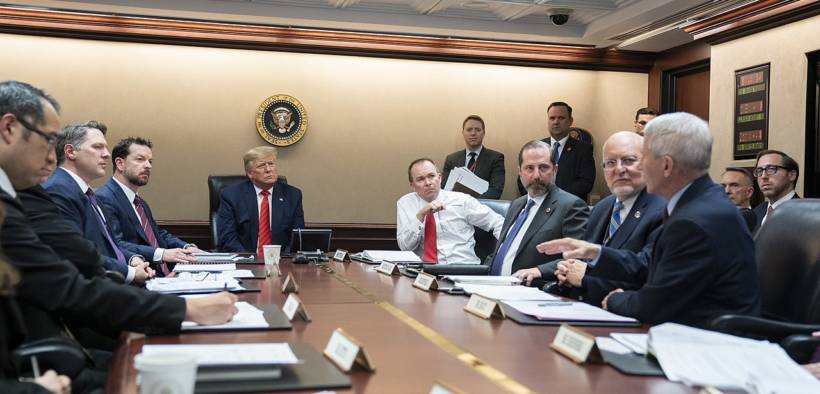How Trump Has Cast China as Enemy Number One

According to a poll, 53% of Americans view China as an “enemy”
One week ago, Secretary of State Mike Pompeo gave a fiery speech on China at the Richard Nixon Presidential Library. Many of the talking points are familiar to those who have followed the White House’s official statements on China, but what effect has that rhetoric had on the American people?
How do statements from Pompeo on China such as, “the free world must triumph over this new tyranny” change how Americans view China and its inhabitants?
Many Americans’ view of China was already damaged at the outset of the coronavirus outbreak. In March, Pew Research found that 66% of Americans had an unfavorable view of China, a number that has slightly increased in recent months according to a Harvard CAPS-Harris Poll.
President Trump has often called COVID-19 the “China Virus” or sometimes “Kung-Flu”. When offering his condolences to the family of Herman Cain, a former Republican presidential candidate and Trump loyalist, Trump said, “He passed away from something called the China virus.”
While Trump has cast China as responsible for the vicious spread of coronavirus in America, his administration has extended its criticism much further.
American Enemy?
A July Harvard CAPS-Harris Poll found that 53% of Americans view China as an “enemy.”
Coinciding with the White House’s statements on China, it has some commentators wondering if China and the United States are headed into a new Cold War.
During Pompeo’s speech on China he described the Chinese Communist Party as a “Marxist-Leninist regime” and Chinese President Xi Jinping as “a true believer in a bankrupt totalitarian ideology.”
But even right-wing institutions like the Koch-funded Cato Institute have acknowledged China’s acceptance of private capital within its economy.
Of course, Pompeo and Trump’s words have long contradicted each other, with the President vacillating between effusive praise and hard-nosed rhetoric.
The Trump Administration’s latest turn on China has been more consistent, building on tensions between the two countries’ much-discussed trade war and the latent hawkishness towards China within America’s foreign policy establishment.
And despite Trump’s sinking polling numbers, he has driven the issue of China to the number one foreign policy talking point for the 2020 presidential election.
While Trump’s assertions that Biden is a socialist in favor of defunding the police have failed to make much impact in the race, accusations of coziness with China have flown in from both candidates as Biden and Trump mark their territory on who is tougher on China.
Presidential Candidates and China
Trump’s reelection campaign has cast Biden as “China’s Puppet”, and the framing has put Biden in an awkward spot as his campaign attempted to outflank Trump’s bravado, drawing the ire of some supporters.
Not only has the Biden campaign attempted to portray Trump as cozy with the Chinese government, but it also accused him of acting like Venezuelan President Nicolás Maduro in a Spanish-language ad.
On Biden’s website, a “rising China” is listed as an inescapable challenge facing the world.
But other than vague statements and harsh rhetoric, the Biden campaign is yet to articulate a clear policy on China and foreign policy in general.
Instead, the Biden campaign has framed the issue of China as one in opposition to Trump. Andrew Bates, a spokesperson for Biden’s campaign told Vox, “Donald Trump has sold every single one of us out to the Chinese government, and cemented himself as the most devastatingly weak, two-faced president in American history when it comes to China.”
If Biden does win the election in November and become the 46th President, what his policy will look like toward China is truly up in the air.
But, as Biden plays into Trump’s hand and kindles animosity between Americans and China, the Democratic candidate is playing a risky game. If 53% percent of Americans view China as an enemy, they may soon start looking for results.







